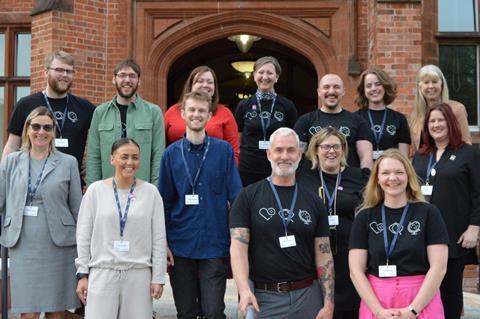Applied Microbiology International is celebrating after being named on the Sunday Times Best Places to Work list.
The learned society was rated Excellent in all categories, netting it a well-deserved listing in the Best Small Organisations category, which celebrates organisations employing 10-49 people.

Paying tribute to AMI’s positive culture, the Sunday Times judges said: ”Geography is not a factor at this company, which was founded in 1931 and offers remote working with flexible hours based on a four-day week.
”With the team of 18 located around the country, the Cambridge organisation, which brings the microbiology community together across borders and disciplines, hosts face-to-face team meetings followed by drinks and dinner to foster and encourage team spirit. Individual training programmes — including MBA level qualifications — and leadership workshops develop staff.”
Happy and productive workforce
A proud Chief Executive Dr Lucy Harper said: “At AMI we have always recognised the value in looking after the team. As a remote organisation with people spread across the whole of the UK and beyond, this is much more difficult, but all the more important.
”We’ve always recognised that people have a life outside the workplace, and we operate flexibly to accommodate individual needs. Without a happy and productive workforce, we couldn’t do what we do, so knowing the team are happy and having this measured externally provides all of us at AMI with even more confidence in our open, flexible and supportive team culture.
”But this isn’t where it ends - culture is continually changing and we will change with it and continually improve to ensure we recruit and retain the best talent and make AMI an even better employer.”
Organisations were scored following a survey of employees. The Sunday Times Best Places to Work awards survey uses 26 questions from WorkL’s employee engagement survey, developed by behavioural scientists, data analysts, psychologists, business leaders, academics and other independent parties to most accurately monitor employee engagement, wellbeing and discretionary effort in the workplace.
To achieve a high overall engagement score, an organisation must score well across WorkL’s six-step framework, including reward and recognition; instilling pride; information sharing; empowerment; wellbeing; and job satisfaction.
Find out more at the Sunday Times.







No comments yet